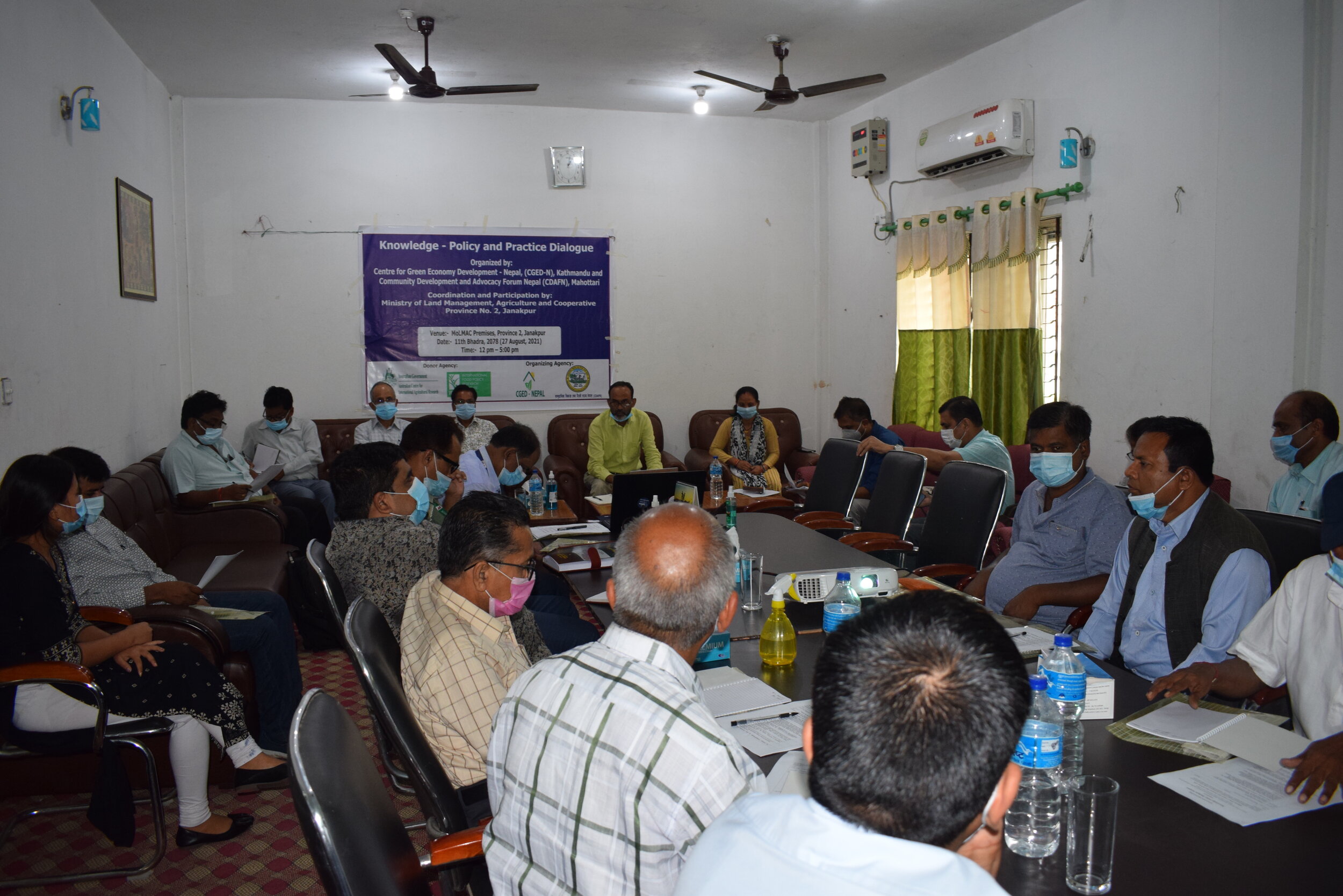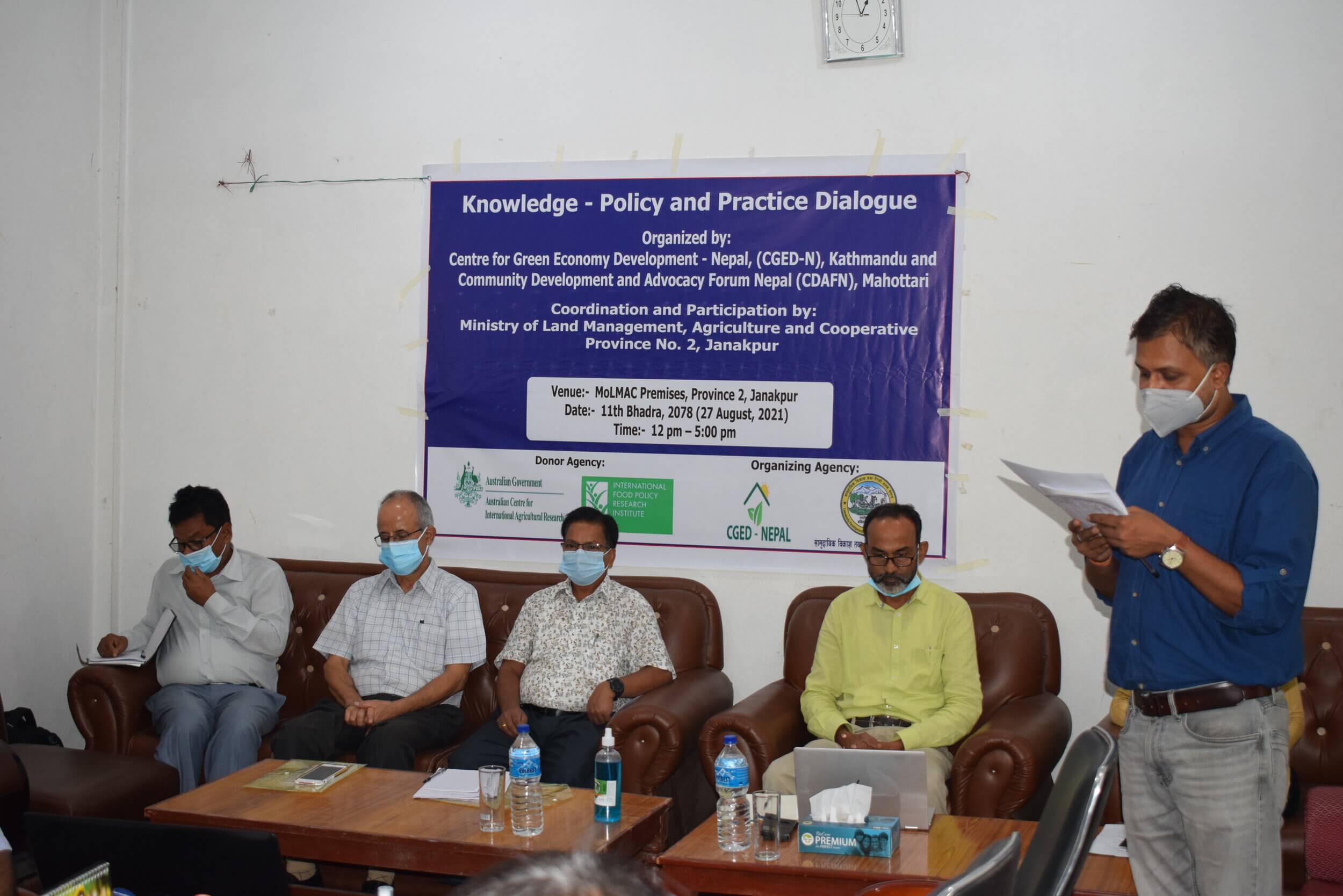Strengthening partnerships to enhance agriculture extension service delivery to farmers in Mahottari and Dhanusha
In Nepal, agriculture is the responsibility of all three levels of government, and progress relies on effective mechanisms to ensure coordinated and coherent action; this includes the flow of knowledge and information. The establishment of Agricultural Knowledge Centres (AKC) were an important institutional innovation by the Ministry of Agriculture and Livestock Development in Nepal when the federalised system of governance system was initiated. There is ample opportunity to enhance the role and contribution of AKCs in transferring agriculture technology by co-assessing and co-producing knowledge with the help local governments and communities.
A team from the Centre for Green Economic Development and local NGO CDAFN are working together with local actors to better understand the priorities of farmers, local and provincial governments to work towards a collectively owned and vibrant set of AKCs that can help accelerate agriculture modernisation in Province 2.
A recent Knowledge Policy and Practice Workshop was held in Janakpur, Province 2. The meeting was attended by a range of stakeholders including the Hon. Member of the Provincial Policy and Planning Commission Hon. Dr Baidhnath Mahato (ex-ED of the NARC); Personal Assistant to the Minister of Agriculture, Acting Secretary, Provincial Directors of Agriculture Research, Agricultural Development and Extension, and Forestry. All eight AKC heads and heads of major NARC centres and Farms in the province were present. The Deputy Mayor of Bhangaha Municipality represented the three municipalities where the research is mainly focused;
The outcome of the meeting was that the Planning Commission, Ministry, all NARC centres, federal Department of Agriculture and AKCs are willing to work in partnership. The meeting participants decided to set up a large front line agriculture enterprise oriented demonstration in all three municipalities wherein all the partners will contribute and work together. With better coordination between existing agriculture development, research and extension institutions and learning from the evolutionary process from India’s Krishi Vigyan Kendras, it is possible to make AKCs an effective vehicle to support food security and sustainable food systems.
For more information, contact Dr Madhav Karki ([email protected]).

